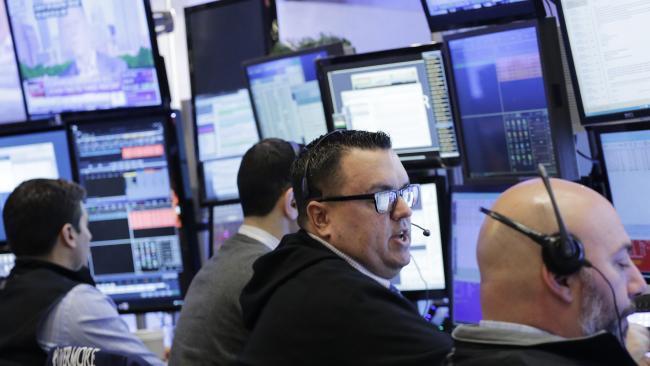Finance news you need to know today
MORE than 30,000 people have marched in Pretoria calling on South African President Jacob Zuma to quit over his handling of the struggling economy.

HERE are eight things making news in business and finance today.
1. SYDNEY — The Australian stock market is set to open lower after indices on Wall Street closed down on lingering geopolitical concerns and US President Donald Trump’s comments on the dollar and interest rates. At 0700 AEST on Thursday the share price futures index was down 31 points, or 0.52 per cent, at 5,896.
2. SYDNEY — The Australian dollar has gained sharply after comments from the US President weakened the US dollar against major currencies. At 0700 AEST on Thursday, the Australian dollar was at 75.23 US cents, up from 74.91 cents on Wednesday.
3. WASHINGTON — President Donald Trump signalled on Wednesday he could be moving closer to the mainstream on monetary policy, saying he had not ruled out reappointment of Janet Yellen to a new four-year term as Fed chair as he considers his choices for the central bank.
4. WASHINGTON — President Donald Trump says the US dollar is “getting too strong” and it will eventually hurt the US economy, even as he says he’d like to see interest rates stay low, the Wall Street Journal reports.
5. PRETORIA — More than 30,000 people have marched in Pretoria calling on South African President Jacob Zuma to quit, keeping up pressure on the leader over his handling of the struggling economy.
6. BRASILIA — Brazil’s President Michel Temer urged politicians on Wednesday to push ahead with business as usual, a day after a Supreme Court justice ordered corruption probes into 98 politicians, including leading legislators and a third of his cabinet.
7. BELGRADE — Germany supports Serbia on its path to the European Union membership but the Balkan country must work on reforms and sort out ties with its former province Kosovo, German Foreign Minister Sigmar Gabriel said on Wednesday.
8. NEW YORK — Starting next week, Wal-Mart will offer discounts on thousands of online-only items when customers elect to have them shipped to one of the company’s stores for pick-up.



